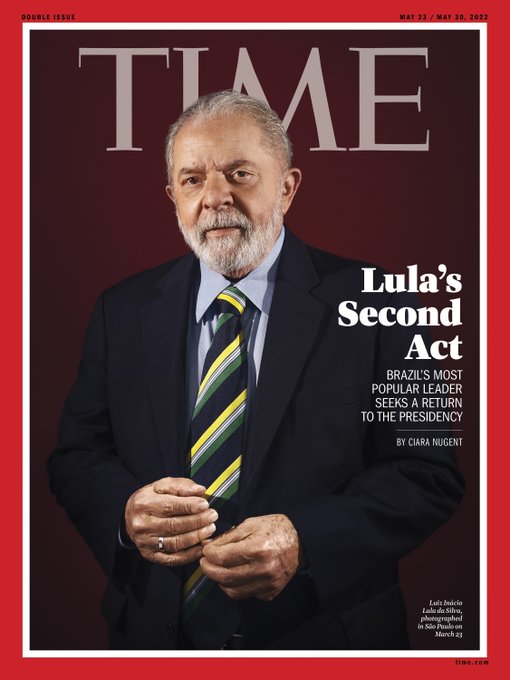black jacket
Nuovo Utente
- Registrato
- 1/1/14
- Messaggi
- 811
- Punti reazioni
- 24
 Iran in the SCO, the timing is right
Iran in the SCO, the timing is rightIran's ascension to the Shanghai Cooperation Organization (SCO) this September would be a win-win for both. For the Islamic Republic, it would represent its first-ever commitment to a regional collective security bloc and untold access to new export markets. For the SCO, Iran would represent a vital foothold connecting West Asia and Eurasia.
Vedi l'allegato 2783172
The timing may be right for Iran to join the SCO this September. The world is changing fast and geopolitical alliances are lining up to stake their claims.
Speaking at his 6 August inauguration ceremony, Iranian President Ebrahim Raisi said the message of the people of Iran in the 2021 presidential election was a message of change. “The world is changing and the interests of nations depend on understanding the new world and strategic interaction with emerging powers. A successful foreign policy will be a balanced foreign policy,” he elaborated.
Contrary to his predecessor, the new Iranian president told reporters during his first press conference that his foreign policy will neither start with the Joint Comprehensive Plan of Action (JCPOA), also known as the Iran nuclear deal, nor will it be limited to the deal.
His words have fueled speculation that Iran foreign policy will shift further eastward under Raisi. By the ‘new world,’ president Raisi was likely referring in part to the rise of China as a major global economic power. Secretary of Iran’s Supreme National Security Council Ali Shamkhani strengthened this speculation on 11 August, in a tweet referencing his phone conversation with the Secretary of Russia’s Security Council Nikolay Patrushev: “Fortunately, the political obstacles to Iran’s membership in the Shanghai agreement (Shanghai Cooperation Organization or SCO) have been removed and Iran’s membership will be finalized through technical formalities.”
The upcoming annual summit of the SCO is going to be held mid-September in Dushanbe, Tajikistan. A source told The Cradle that Tajikistan as rotating president and host of the summit has invited the Iranian president, who is expected to attend the conference.
If Iran’s permanent membership is confirmed in the leaders’ summit, this will be the first major step by the conservative Raisi administration toward Iran’s official convergence with eastern powers, China and Russia. Even more importantly, it will also mark the first time Iran has joined a regional collective security bloc since the 1979 Islamic Revolution.
The SCO is currently comprised of eight-member states including China, Russia, India, Kazakhstan, Kyrgyzstan, Pakistan, Tajikistan and Uzbekistan. Iran has held observer status in the organization since 2005. The issue of Iran’s accession to the body has been raised twice at the leaders’ level meetings but was rejected both times. The first application was made in 2006, and dismissed due to Iran’s inclusion in Chapter 7 of the UN Charter; It was rejected on the grounds that SCO member states have obligations to each other under the charter of the organization, which cannot be fulfilled with Iran being under sanctions.
The 2015 nuclear deal and subsequent lifting of international sanctions prompted a second Iranian application for permanent SCO membership. This too was dismissed, this time by Tajikistan, which believed Tehran to be supportive of the Islamic Movement of Tajikistan.
While this record would suggest caution in predicting Iran’s full membership status, new developments on the global stage bode well for Tehran’s accession to the SCO. Relentless US pressure and sanctions on China, Russia and Iran have, in recent years, prodded the three nations into converging on various fronts in order to counter US hegemonic demands. But now it appears the change of administration in the US has done little to improve Beijing’s and Moscow’s relations with Washington. For these two rising powers, US president Joe Biden is no improvement on former President Donald Trump, and potentially even worse. Likewise Iran, which hoped at least to see a unilateral return to the JCPOA under Biden.
Today, China, Russia, and Iran have even clearer reason to be members of a bloc which can compete with Western-dominated organizations that persist in thwarting their progress at every turn. The nature and function of the SCO might differ from Western alliances such as NATO, but it will have the potential to counter American hegemony, at least indirectly, and in the long run – if it starts now.
The new administration in Iran will be keenly eying the political, security and economic benefits of full SCO membership as well. If the SCO accepts Iran’s application this time around, despite aggressive US sanctions levied against the country, it suggests that member states have shed their concerns about the inviolability of US diktats, and may even be prepared to work around them. China, for instance, has been testing the US resolve for some time now by not ceasing its oil purchases from Iran. That, in itself, will be a huge burden off Tehran’s shoulders. It will no longer be expected to walk its difficult path alone.
The political and security dividends implicit in SCO membership are significant too. Iran can gain better access to the vast and hugely populated region of Eurasia to diversify its export markets, but importantly, the SCO will also for the first time gain inroads into West Asia. Also of interest to land-locked, Central Asian, SCO members will be Iran’s ports and waterways. China’s Belt and Road Initiative (BRI) has already confirmed a major road artery through the north of Iran, and the combination of the Islamic Republic’s energy resources, waters and land routes will be hard to pass up. It is worth noting that Tehran reached an interim free trade agreement with the Eurasian Economic Union (EAEU) in early 2021. The country and the union will, in turn, be working on a plan for full-scale Iranian membership in the EAEU.
Against the backdrop of these developments, Iran has clinched a 25-year comprehensive strategic agreement with China, and is about to start work on a pre-existing, long-term deal with Russia as well. Both powers are permanent members of the United Nations Security Council and have solid political, military and economic offerings that are tempting for Iran, specifically in an era of US ‘maximum pressure.’
Although membership in the SCO is based on consensus, Beijing and Moscow are the main driving forces in the organization and can pave the way for Iran’s membership. Iran’s relationship with Tajikistan continues to improve, and the latter has publicly and privately dropped its objections to Tehran’s application. The Speaker of Tajikistan’s parliament attended the inauguration ceremony of president Raisi and met with him one-on-one. And earlier this year, Tajikistan and Iran laid the foundation for expanding military cooperation to counter terrorism.
While Iran’s SCO membership prospects are unlikely to be confirmed before the September meeting in Dushanbe, the stars are well aligned this time. The US confrontation against Russia, China, and Iran, its humiliating losses in Afghanistan, Syria and Yemen, its troop drawdown in Iraq, China’s increasing footprint in West Asia, and the general state of America’s hegemonic decline – all these factors invite a seismic change in the global balance of power. And with that, the prospect of new and unexpected formal alliances that we might not have seen a few short years ago.
Iran in the SCO, the timing is right

